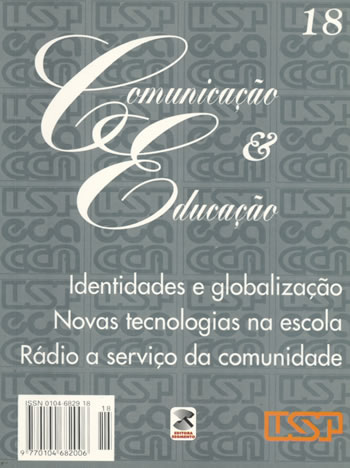Desafios culturais da comunicação à educação
DOI:
https://doi.org/10.11606/issn.2316-9125.v0i18p51-61Palabras clave:
Colômbia, cidadania, escola, meios de comunicação, ecossistema comunicativoResumen
Este artigo trata das preocupações de Jesús Martín-Barbero em relação à falta de compreensão na elaboração de políticas na Colômbia, sobre como o campo da comunicação pode atuar frente aos desafios que a Educação tem de enfrentar para a formação de cidadãos livres e capazes de atuar de forma autônoma na sociedade. Ele discute as dificuldades e principalmente a incapacidade de a escola alterar sua relação com a produção e aquisição de conhecimento. O modelo de comunicação predominante na escola é vertical e autoritário na relação professor-aluno, e linear seqüencial no aprendizado, impedindo que se abra de maneira a enriquecer-se com as novas linguagens dos meios de comunicação. Ele também descarta a mera aquisição de equipamentos e tecnologias, por parte da escola, para a transposição ilustrativa dos conteúdos. Salienta que a escola precisa alterar suas formas de relacionamento com os jovens, com o conhecimento e com o conjunto da sociedade. Essas mudanças comportam entender a centralidade dos processos de comunicação - ao que denominou ecossistema comunicativo - para capacitar o jovem para uma mentalidade crítica, fazendo-o ler o mundo de maneira cidadã.
Descargas
Descargas
Publicado
Número
Sección
Licencia
Autorizo a publicação do artigo submetido e cedo os direitos autorais à revista, na versão impressa e eletrônica, caso o mesmo seja aprovado após a avaliação dos pareceristas.
Estou ciente de que os leitores poderão usar este artigo sem prévia solicitação, desde que referidas a fonte e a autoria. Os leitores não estão autorizados a usar este artigo para reprodução, na integra ou em partes, para fins comerciais.

































